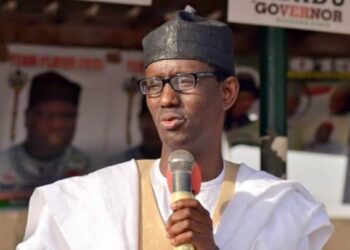The federal government has given reasons why it believes the former National Security Adviser, Sambo Dasuki, should not be granted bail.
Mr Dasuki was arrested by operatives of the State Security Service in December 2015, accused of involvement in illegal possession of firearms.
The former NSA was also accused of diverting $2.1 billion from his office while he served as NSA.
He is facing separate trials for the alleged offences.
Since his arrest in 2015, Dasuki has been granted bail multiple times by different courts.
The latest bail was approved on July 2 but the federal government refused to release him.
Following the government’s failure to obey the various court orders, Dasuki’s lawyers asked the court to prevent the continuation of their client’s case on the grounds that the federal government agencies prosecuting Dasuki have refused to obey legitimate orders of court.
A new interview by Attorney General, Abubakar Malami with the Voice of America, Hausa Service, has defended the decision not to release Dasuki.
The interview was published on July 13 but has just been obtained by Premium Times.
In it, Malami claimed allegations against Dasuki are a matter of public interest overriding an individual’s rights.
“What I want you to know is that issues concerning law and order under Muhammadu Buhari are sacrosanct and obeying court order is compulsory,” he said.
“However, you should also know that there is a general consensus world over that where the dispute is only between individuals, then you can consider the issue based on the instant situation.
But if the dispute is about an issue that affects an entire nation, then you have to remember that government is about the people not for only an individual.
“So you have to look at it from this perspective.
If the issue about an individual coincides with that which affects the people of a nation and you are now saying the government did not obey a court order that infringes on a single person’s rights.
Remember we are talking about a person who was instrumental to the deaths of over one hundred thousand people.
Are you saying that the rights of one person is more important than that of 100,000 who lost their lives?
Blueprint gives you the latest Nigerian news in one place. Read the news behind the news on burning National issues, Kannywood, Videos and the Military



